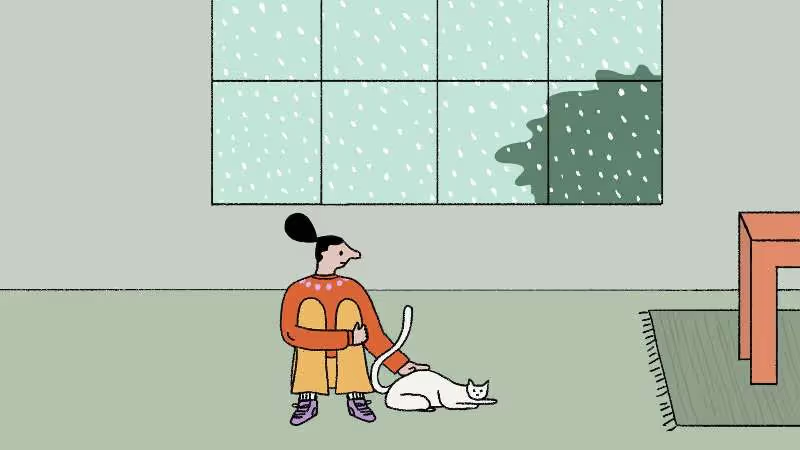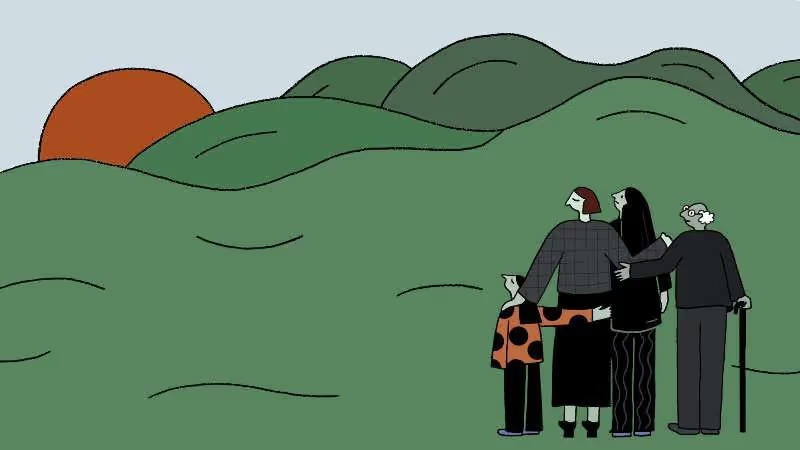Shall We Begin?
“Tell stories, not theories. Talk about people, not cases.”
These were some of the key messages I learned from my mentor, Rich Simon, who died last month. [Content warning: mental illness, suicide] Rich, editor of Psychotherapy Networker and host of the publication’s eponymous conference, was my friend, colleague, and teacher. I wouldn’t be where I am without him. I wouldn’t have believed I could write without him. He encouraged me to put my ideas about love and desire on paper. He made me write eleven versions of the original article that eventually led to my first book, Mating in Captivity.
He wasn’t well-known in other circles, but in the world of psychotherapy, Rich was a giant—an innovator who wrote about mental health and the field with a journalist’s sensibility. He was a bon vivant, a showman. He began every conference with a cabaret. He was social and loved to connect people to one another. And he also struggled with bipolar disorder for much of his life. His suicide is a testament to the tenacious nature of mental illness. And it’s a reminder of the limitations of the mental health field.
I, along with many other of Rich’s mentees, are grieving for the man who made us. After hearing the news, we coalesced for the first time ever—on Zoom, of course—and I quickly learned something new about my friend Rich. With his undivided attention, encouragement, and big heart, he made each and every one of us feel like his favorite child. It’s the kind of posthumous revelation that cracks the sadness open, makes me smile. We all thought we were special because that’s how he made people feel. That’s true charisma.
Rooted in the master-apprentice relationship, mentorship is often thought of as a wholly professional experience. A great mentor delights in seeing the mentee flourish. They’re not competitive. They bear witness to your transformation and growth. Rich saw things in me that I did not yet see in myself. He believed in me and inspired confidence when I had none. He helped counteract the ever-present critical voice (my mother’s) that lived in my head and permeated my sense of self and well-being. He reflected a kinder and more capable version of myself than I could produce on my own. It made all the difference in my life.
When people tell me about major difficulties earlier in their lives—violence, abandonment, neglect, and more—I always ask: who was there for you? Did anybody step in? Was there a person who saw and affirmed you? Did they use their position of power to lift you rather than to exploit you? What effect did this have on your life? Do they know?
The strongest protective factors against hardship are our relationships. Whether we are able to turn our adverse experiences into a resource rather than a bane often depends on how much our relationships have become resources. Accessing these resources fosters our resilience. We are lost without the presence of truly benevolent, caring people—the teacher, coach, neighbor, or family friend who didn’t put us down, who shined a spotlight on us that revealed parts of us that we didn’t know existed or didn’t value. Rich was one of those people for me. And though he had beautiful strong relationships, and major resilience, I will always wish I could have done more for him.
For Rich’s community, the hole that he leaves is not just inside each of us but in the threads between us. Will we find a way to stay connected to each other without him? The answer, of course, is that we must. He was the master networker who never allowed us to forget that it is our relationships that keep us tethered to ourselves and to each other. As we move into winter time, still navigating this ongoing pandemic, many of us are feeling depressed, burned out, unmoored, lonely, and uncertain. We are continuing to face massive change and loss. These are circumstances that even the most resilient, well-resourced people find difficult. I can’t repeat it often enough: Reach out. Don’t wait for tomorrow what you can do today.
It can be as simple as a phone call or a letter. Or a question—as Rich used to say every time he called to check in, which he did often: “so what’s going on in your world?”
Let’s Turn the Lens on You
Who’s your mentor?
- Think of yourself in the year 2022. You are successful, accomplished, happy, excited, and continuing to grow in surprising ways.
- What does your life look like?
- Who helped you get there?
- What did that person do to help you on your path?
- Describe one instance in which they redirected you down a better path.
- Do they know you feel this way?
- If you were toasting this person at a party, what would you say?
- Use your answers to these prompts to write them a letter. Keep the first draft for yourself. Send the second.
Let's continue the conversation.
Watch the replay of the Letters From Esther Workshop: How A Great Mentor Makes All The Difference.
More From Esther
What Death Can Teach Us About Life / a recent newsletter and workshop
In October’s newsletter and workshop, we explored how talking about death is really talking about life—hopes, fears, uncertainty, imagination, legacy, connection, responsibility, love.
Helping is Making Me Feel Helpless / a blog article
In this article, we take a hard look at how constantly coming to the rescue for our loved ones can deplete us and what to do about it.
How’s Work? Podcast Season 2 / request for applications
If you have a workplace dilemma you’d like to explore with Esther in Season 2 of How’s Work?, consider applying with a business partner, former boss, colleague, employee, mentor, or whomever you need to start the conversation with. (Please do not apply with your romantic partner—that space we cover on another podcast!) Often, our applicants don’t come into Esther’s office because they’re ready—they come in because they’ve tried everything else. If you feel this way at work, fill out an application today.
Conversation Starters
A compendium of highly recommended sources of inspiration and information
On Rich Simon:
- Rich Simon’s Obituary
- “In Memory of Rich Simon,” a video tribute by Psychotherapy Networker
- “When Everything Is Not Enough: Reflections on the suicide of a beloved friend” by Martha Manning, Ph.D.
I’m Reading:
- “The Beauty of What Remains: How Our Greatest Fear Becomes Our Greatest Gift,” a new book by Steve Leder
- “What’s Your Story?,” a new interactive journal by Rebecca Walker and Lily Diamond
- “Leaving the Land of Romantic Fantasy: Why I Chose to be a Single Mum” by Alexandra Collier (The Sydney Morning Herald)

.avif)




.svg)





